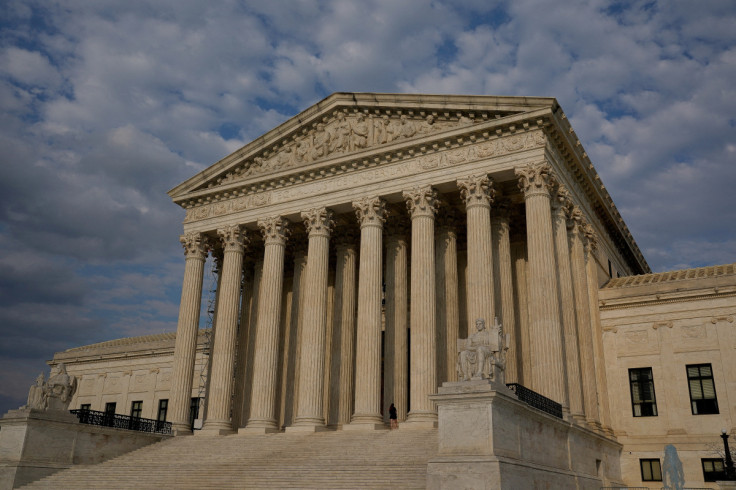
The Supreme Court lifted on Tuesday a stay on a Texas law allowing its authorities to arrest and deport migrants who cross unlawfully into the country. This means the law will be able to move forward while a broader legal battle over it continues.
The divided decision did not include a detailed opinion, as it's usually the case in emergency appeals. Liberal justices Ketanji Brown Jackson, Elena Kagan and Sonia Sotomayor disagreed about letting the law go into effect.
The Justice Department has sued Texas over the law, saying the law would alter "the status quo that has existed between the United States and the States in the context of immigration for almost 150 years." It also said immigration is an issue that falls solely within the authority of the federal government. And, on a separate note, that the law would have "significant and immediate adverse effects" on the country's relationship with Mexico.
A federal judge in the state had blocked the law, siding with the arguments from the Justice department, but the 5th U.S. Court of Appeals rejected the ruling and sided with the Greg Abbott administration.
Conservative justices Amy Coney Barrett and Brett Kavanaugh wrote a concurring opinion saying that the 5th U.S. Circuit Court of Appeals could block the measure and that both parties could go back to the Supreme Court if that were to be the case.
The stay was set to end on Monday afternoon, but Justice Samuel Alito extended it right before it went into effect. The measure was lifted less than a day later.

Senate Bill 4, as the proposed law is known, has been considered by opponents the most dramatic attempt by a state to police immigration since an Arizona law more than a decade ago that would have allowed police to arrest people for federal immigration violations, often referred to as the "show me your papers" bill."
The law allows state authorities to arrest and potentially deport migrants who cross the border unlawfully. Concretely, they can identify, apprehend, and prosecute people under suspicion of having entered the country without authorization.
In addition, it classifies these illegal crossings as a Class B misdemeanor that carries a penalty of up to six months in jail. Migrants who don't leave and are arrested again could face more serious charges.
Officers conducting arrest must have probable cause, the law says, including witness the illegal entry or seeing it on video. It can be enforced all over the state, but Republican state Representative David Spiller, who wrote the law, said he expects most arrests to take place within 50 miles of the southern border. All people apprehended would be sent to ports of entry along the southern border, even if they are not Mexican citizens.
According to an analysis by The Associated Press, arrests cannot be made in certain places, including "public and private schools; places of worship; or hospitals and other health care facilities, among them those where sexual assault forensic examinations are conducted."
The Texas Attorney General has said the state's law mirrored federal law and "was adopted to address the ongoing crisis at the southern border, which hurts Texans more than anyone else."
This is not the only immigration-related clash between the Biden and Abbott administrations. They are also at odds on the installing of razor wire fences throughout Texas, and even though the former got a Supreme Court ruling allowing it to cut it down, Texas' National Guard have continued installing more.
Several Republicans have backed Texas and Gov. Greg Abbott's efforts, saying the federal government is not doing enough to enforce existing immigration laws.
© 2024 Latin Times. All rights reserved. Do not reproduce without permission.







